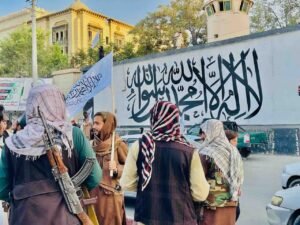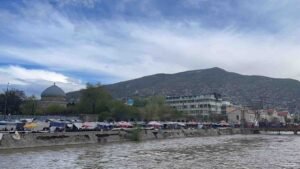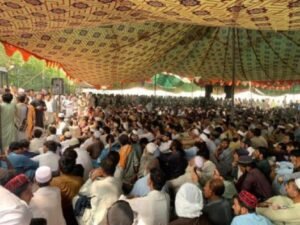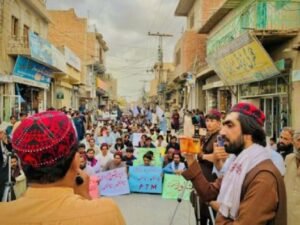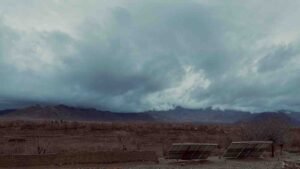Discrimination Against Hazaras in the Taliban’s Afghanistan
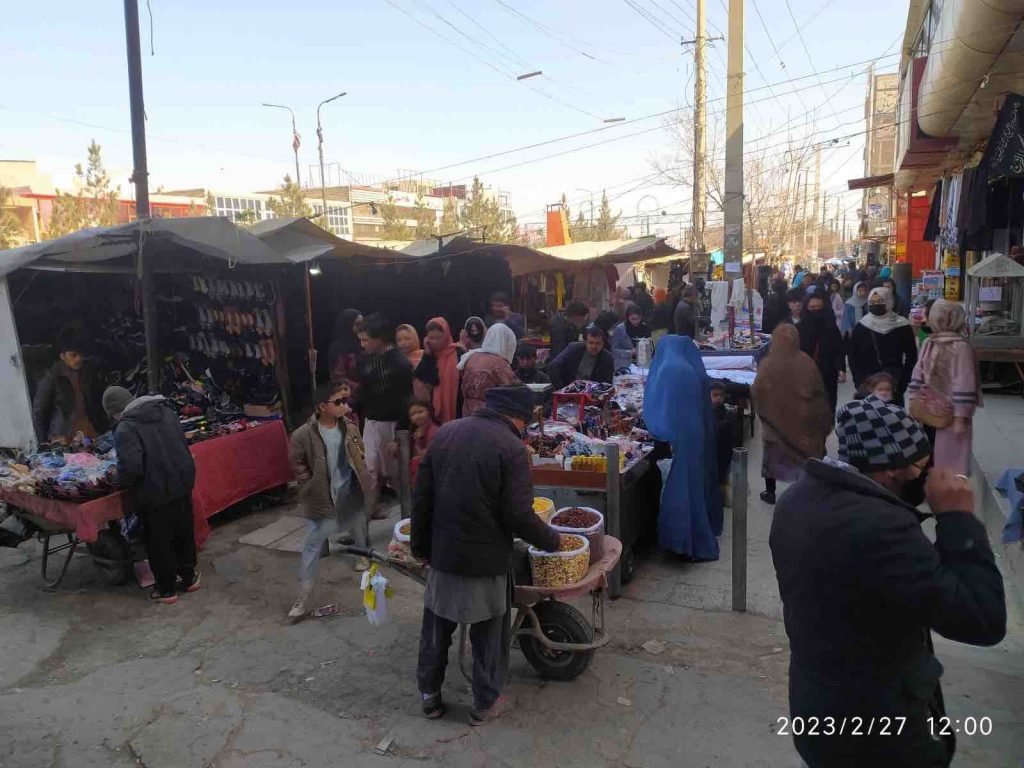
By Qurban Ali Hassani
In addition to women and girls from all ethnic groups in Afghanistan, members of minorities such as the Hazara community are particularly affected by repression from the Taliban regime: “Hazaras, who are overwhelmingly Shia, are historically one of the most severely persecuted groups in Afghanistan. Their members are subjected to multiple forms of discrimination, affecting a broad-spectrum of human rights, including economic, social and cultural rights. (…) There are reports of arbitrary arrests, torture and other ill-treatment, summary executions and enforced disappearances.” (Report of the United Nations Special Rapporteur on the situation of human rights in Afghanistan).
The following article was written by Qurban Ali Hassani* as part of our article series “Life under the Taliban”. He is one of the few remaining civil servants from the Hazara community in the current Afghan administration. He has chosen a pseudonym to protect himself and his family from possible repression by the Taliban.
Oppression and attacks are part of everyday life
Living in Dasht-e-Barchi, the Hazara-dominated western part of Kabul, I do not feel safe even when I go to the office by public transportation because of targeted attacks. Hazaras are being targeted and killed in public transport, educational centers, religious places, and in other soft targets. This has become normal behavior since the Taliban’s takeover on the 15th of August 2021. A considerable number of Hazaras have been killed since then. For instance, on the morning of the 30th of September 2022, an explosion targeted a crowded class of young Hazara girls at Kaaj Educational Center, killing nearly 60 teenage girls and injuring more than a hundred of them. I remember when a father was searching for his daughter’s dead body in Mohammad Ali Jenah Hospital where many injured people were taken after the explosion, a member of the Taliban slapped him and kicked him out of the hospital instead of sympathizing with him. The hashtag #StopHazaraGenocide trended after this horrific attack. The killing of mostly Hazara students mobilized the Afghan diaspora worldwide to demand that the international community pressure the Taliban to protect Hazaras from targeted killings. As a Hazara boy, I feel that we have been exposed to a “state of nature” under the Taliban. Hazaras not only in Dasht-e Barchi but also across Afghanistan feel that there is no one in the Afghan government who will protect them.
The Rise of Hope
I lived with my family in a remote and isolated village in northern Balkh Province. In the aftermath of the Taliban fall and invasion of Afghanistan by the U.S.-led forces in 2001, I left my village and moved to the city of Masar-e Scharif in search of educational opportunities. The West installed a new democratic political system in Afghanistan right after the invasion in 2001. The new democratic system instilled hope in the people of Afghanistan, particularly for Hazaras who have a long history of marginalization and despair. I still remember how happy and hopeful the people were the days after the Taliban were ousted from power and during the rise of a new political system in Afghanistan.
In post-Taliban Afghanistan, Afghan youth found opportunities to attend schools and universities, particularly girls who had been banned from attending them. I took advantage of this opportunity as soon as I arrived in Masar-e Scharif from my village and signed up for a school. There began a new chapter in my life. For any marginalized and oppressed person across the country, including myself, education was and still is the key that enables us to overcome discrimination and oppression. Education gives us more strength to fight against discrimination, marginalization and inequality.
After graduating from school in the Balk province in January 2010, I was admitted to the Faculty of Law and Political Science at Balkh University in the same year. After finishing my program, I began working as a trainer with the Civil Society and Human Rights Network that aimed to raise awareness about human rights. My tenure with this organization lasted four years. Then, I worked with the Former Afghanistan Government as a civil servant. However, everything changed in August 2021, when the Islamic Republic of Afghanistan collapsed and the Taliban regained power. The return of the Taliban to power shattered our hopes.
The Fall of Hope and the Rise of Darkness
During the two previous decades, we got used to a new lifestyle. New political and cultural values replaced the old ones and the country was on a path toward development. Like the rest of the Afghan people, I was optimistic about the future of my country, myself and my career. However, the Taliban’s takeover ended that optimism, and now the whole country is under their strict control. The Taliban’s totalitarian way of governing has deprived people, especially the minority groups such as Hazaras of their basic rights. Under the Taliban regime, people have no choice but to obey it blindly. Hazaras’ voice is silenced under this regime.
Life under the Taliban is extremely difficult and a real disaster. Living under the control of such an inhumane group is one of the most traumatic things I have ever experienced. It is not only my story under the Taliban but also the story of all Hazaras in Afghanistan. For Hazaras, the situation has deteriorated since August 2021. Hazaras have been subjected to uncertainty. The Taliban regime does not feel responsible for the Hazaras. Although the regime declares that all Afghans have the same rights, its behavior toward Hazaras is discriminatory and contradicts their words.
The Emergence of State of Nature
The Taliban takeover has vanished any chances for Hazaras to imagine having a piece of political power. No Hazara is part of the regime’s cabinet. As a Hazara, I do not expect to be appointed by the regime as a high official in the country. Even if I gain expertise in a particular field under the Taliban, there is no place for me to work as a high-ranking official in government due to ethnic issues. Hazaras still suffer from discrimination in Taliban’s Afghanistan. Imagine how difficult life would be in a situation where you do not have the opportunities that the rest of your country’s ethnic groups have. Hazaras are living under conditions now where their opportunities have been robbed from them by the de facto authorities. The Taliban takeover destroyed Hazaras’ future political landscape. Talibans’ discrimination against Hazaras is an undeniable reality in Afghanistan.
In the office where I work, I have noticed that no Hazara had been employed during the past 18 months. This does not mean that there are no competent Hazaras for the job. Hazaras are practically banned from being employed by government entities. I am one of a few left who was employed under the previous government and now experience various kinds of challenges in the office due to my ethnicity.
Before the Taliban takeover, Hazaras graduates searched for jobs in governmental and non-governmental organizations but now they must return to their villages because of a lack of employment. Hazaras are deprived of many services and, therefore, their families live in extreme poverty. The Taliban have deliberately kept Hazaras away from international humanitarian aid, instead keeping most aid for themselves. Life for Hazaras has gone from bad to worse under the Taliban regime. I hope the international community increases the pressure on the Taliban regime to pave the way for a legitimate and inclusive government that includes all political and ethnic groups of Afghanistan. Otherwise, the continuation of this illegitimate regime will certainly impose threats to international security sooner or later as it did on the 9/11, 2001.
Afghanistan under the control of the Taliban regime is a theatre of vast human rights violations. The people deserve to have a relatively secure and safe life under an elected and legitimate government. The international community must bring political power back to the people and an elected government must be established. The international community is responsible for its part in the situation in Afghanistan. Not only have the internal factors worsened the situation of my country, but external factors from the international community have deteriorated the situation in Afghanistan and handed over my country to the Taliban.
This article was initially published by the VIDC website.
* For security reasons, the author uses a pseudonym. He is one of the few remaining civil servants from the Hazara community in the current Afghan administration.
Note: The contents of the article are of sole responsibility of the author. Afghan Diaspora Network will not be responsible for any inaccurate or incorrect statement in the articles.

